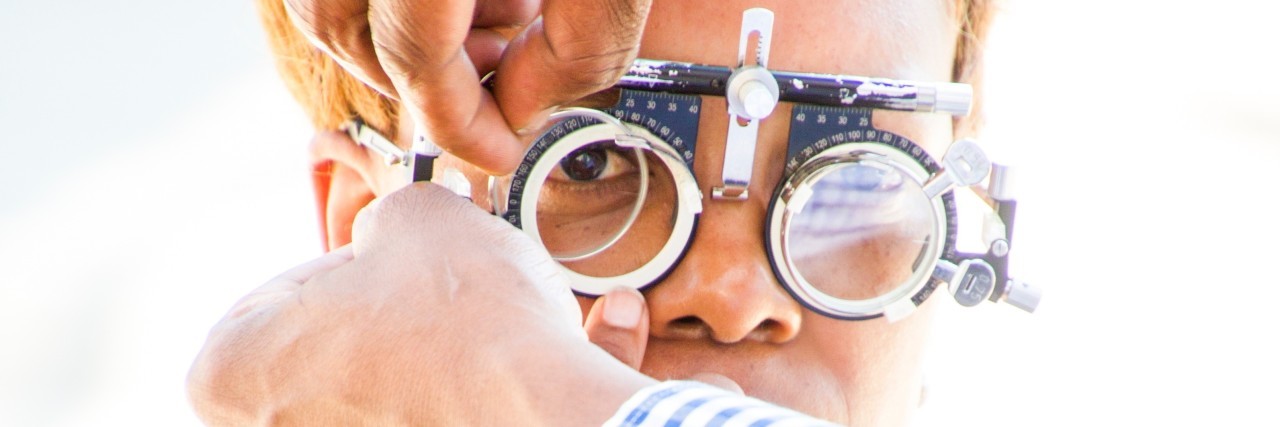Did you know many causes of vision loss and blindness go undetected until it’s too late? Many of these have no symptoms until there is not much we can do to reverse the damage.
Diseases such as diabetic retinopathy, glaucoma, cataracts, retinitis pigmentosa, and age-related macular degeneration (AMD) often go undiagnosed. This is why an annual eye exam is important.
I don’t mean the easy one that checks your glasses prescription. Sit in a chair, cover one eye and spout off letters off the chat “E…F…P…T…” and then you’re on your way. I mean a comprehensive one that takes up to an hour or more depending on your doctor, where they run tests for acuity, color blindness, cover test (testing how each eye works alone), eye movement, depth perception, glaucoma and visual field (for peripheral vision). They’ll also use different methods to examine the inner eye with cameras and magnifiers.
You’re probably thinking “I don’t have time for that and besides, I have 20/20 vision.” Well let me tell you about the diseases I mentioned earlier:
Diabetic retinopathy: This is damage to the retina of the eye caused by diabetes and usually goes undetected until it’s too severe to correct. Diabetes monitoring, health checks and eye exams can help prevent it or stop it in its early stages.
Glaucoma: This causes damage to the optic nerve that carries information from the eye to the brain. Glaucoma usually has few or no initial symptoms. It causes loss of peripheral vision and even blindness if left untreated.
Cataracts: This is the most common cause of vision loss in people over age 40 and is the major cause of blindness in the world. It’s basically a clouding of the eye lens that helps focus light onto the retina. In the early stages, one can just get stronger glasses, bifocals and such. In the later stages when cataracts are really impairing your vision, surgery can be a successful option.
Retinitis pigmentosa: This is a rare degenerative disease where the retina slowly degenerates over time, causing blindness. The first symptoms of RP are difficulty seeing at night, and in later stages, only a small area of central vision remains. There’s no way to predict how fast it will progress or the amount of vision loss, but early detection can help you prepare for the future.
Age-related macular degeneration: This is the leading cause of vision loss among people age 50 and older. It causes damage to the macula, a small spot near the center of the retina and destroys central vision. Even though AMD doesn’t cause complete blindness, it does interfere with everyday activities. AMD has few symptoms in the early stages, so it’s important for annual eye exams. In the late stages there is irreversible damage to central vision.
As you can guess the vision loss that can occur from these eye diseases can greatly impact your life, your employment, your independence (in the beginning anyway), and your family and social life. So do yourself a huge favor and book an appointment for a comprehensive visual exam today.
Photo via Unsplash.

